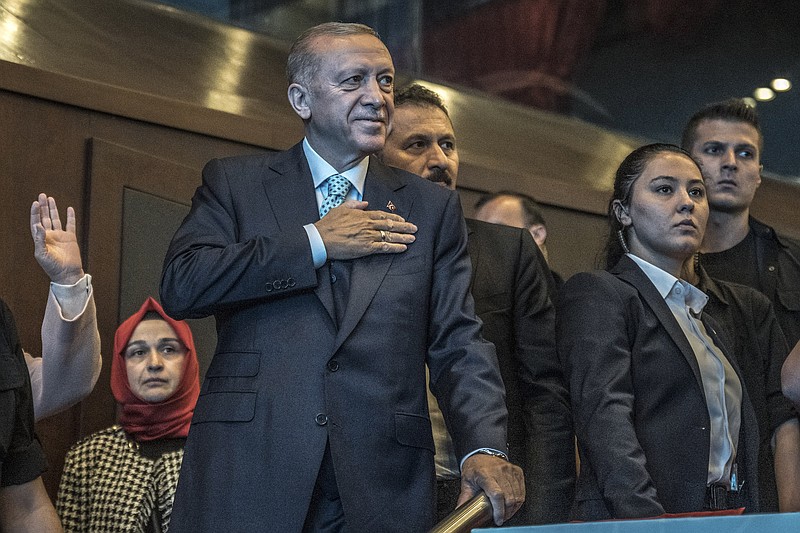"The totalitarian phenomenon," French philosopher Jean-François Revel once noted, "is not to be understood without making an allowance for the thesis that some important part of every society consists of people who actively want tyranny: either to exercise it themselves or — much more mysteriously — to submit to it."
It's an observation that should help guide our thinking about the re-election this week of Recep Tayyip Erdogan in Turkey. And it should serve as a warning about other places — including the Republican Party — where autocratic leaders, are returning to power through democratic means.
That's not quite the way Erdogan's close-but-comfortable victory in Sunday's runoff over former civil servant Kemal Kilicdaroglu is being described in many analyses. The president, they say, has spent 20 years in power tilting every conceivable scale in his favor.
Erdogan has used regulatory means and abused the criminal-justice system to effectively control the news media. He has exercised his presidential power to deliver subsidies, tax cuts, cheap loans and other handouts to favored constituencies. He has sought to criminalize an opposition party on specious grounds of links to terrorist groups.
Then, too, Kilicdaroglu was widely seen as a colorless and inept politician, promising a return to a status quo ante that many Turks remember, with no fondness, as a time of regular economic crises and a kind of repressive secularism.
Turkey under Erdogan is in a dreadful state and has been for a long time. Inflation last year hit 85% and is still running north of 40%, thanks to Erdogan's insistence on cutting interest rates in the teeth of rising prices. He has used a series of show trials — some based in fact, others pure fantasy — to eviscerate civil freedoms. February's earthquakes, which took an estimated 50,000 lives and injured twice as many, were badly handled by the government and exposed the corruption of a system that cared more for patronage networks than for well-built buildings.
Under normal political expectations, Erdogan should have paid the political price with a crushing electoral defeat. Not only did he survive, he increased his vote share in some of the towns worst hit by, and most neglected after, the earthquakes. "We love him," explained a resident quoted in The Economist. "For the call to prayer, for our homes, for our headscarves."
That last line is telling, and not just because it gets to the importance of Erdogan's Islamism as the secret of his success. It's a rebuke to James Carville's parochially American slogan, "It's the economy, stupid." Actually, no: It's also God, tradition, values, identity, culture and the resentments that go with each.
There is also the matter of power. The classically liberal political tradition is based on the suspicion of power. The illiberal tradition is based on the exaltation of it. Erdogan built himself an aesthetically grotesque, 1,100-room presidential palace for $615 million. Far from scandalizing his supporters, it seems to have delighted them. In it, they see not a sign of extravagance or waste, but the importance of the man and the movement to which they attach themselves and submit.
All this is a reminder that political signals are often transmitted at frequencies that liberal ears have trouble hearing. To wonder how Erdogan could possibly be re-elected after so thoroughly wrecking his country's economy and its institutions is akin to wondering how Vladimir Putin appears to retain considerable domestic support in the wake of his Ukraine debacle.
Which brings us to another would-be strongman in his palace in Palm Beach. The Trump movement isn't built on the prospect of winning. It's built on a sense of belonging: of being heard and seen; of being a thorn in the side to those you sense despise you and whom you despise in turn. All the rest — victory or defeat, prosperity or misery — is details.
Erdogan defied expectation because he understood this. He won't be the last populist leader to do so.
The New York Times
